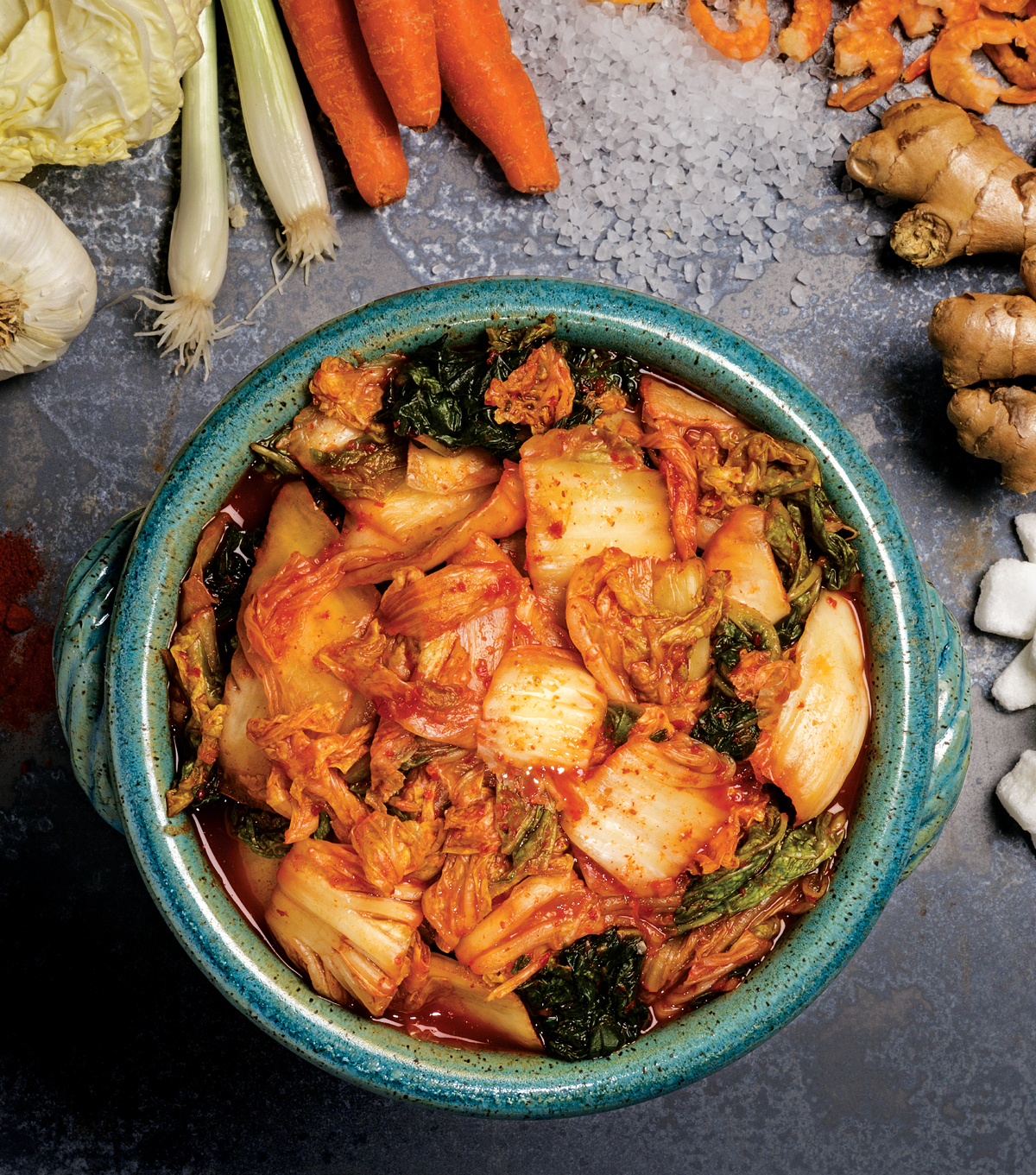Bring in the Funk: Why Boston Chefs Are Fermenting Their Food

The “Rot” Idea: Try it at home with a fermentation crock from J.P.-based potter Jeremy Ogusky ($99, claycrocks.com), recommended by Sofra’s Geoff Lukas. (Photograph by Dave Bradley. Styling by Rowena Day/Ennis.)
When salt and veggies meet up, kick back, and take an extended vacation together in a sealed container, all sorts of strange, alluring, incredibly pungent (in a good way!) magic occurs. Fermentation may be the oldest preservation trick in the book, but it’s become increasingly popular with local chefs looking to add unexpected pops of funky intensity to their dishes—and a natural extension of today’s burgeoning DIY ethos. The technique of choice is lactic fermentation, a process by which the natural sugars in cabbage (or apples, or radishes, or any sugar-rich fruit or vegetable) break down via constant, weeks-long contact with salt, and occasionally a starter like whey, creating lactic acid bacteria and other digestion-aiding probiotics in the process. Those health benefits give the practice real staying power, says Sofra chef de cuisine Geoff Lukas, who makes fermented condiments like Middle Eastern green-mango-based amba and Indian-inspired lime pickles: “People are becoming more aware of what microbes actually are and what they do.” Not the least of which is the creation of potent flavors like those found in the fiery hot sauce gracing the brunchtime eggs at Newton’s Farmstead Table; the tangy tomatoes accompanying the chicken confit at Tres Gatos; and all manner of kimchi (pictured), the crunchy, assertive Korean condiment that’s been showing up with increasing frequency on menus of every ethnic stripe.


